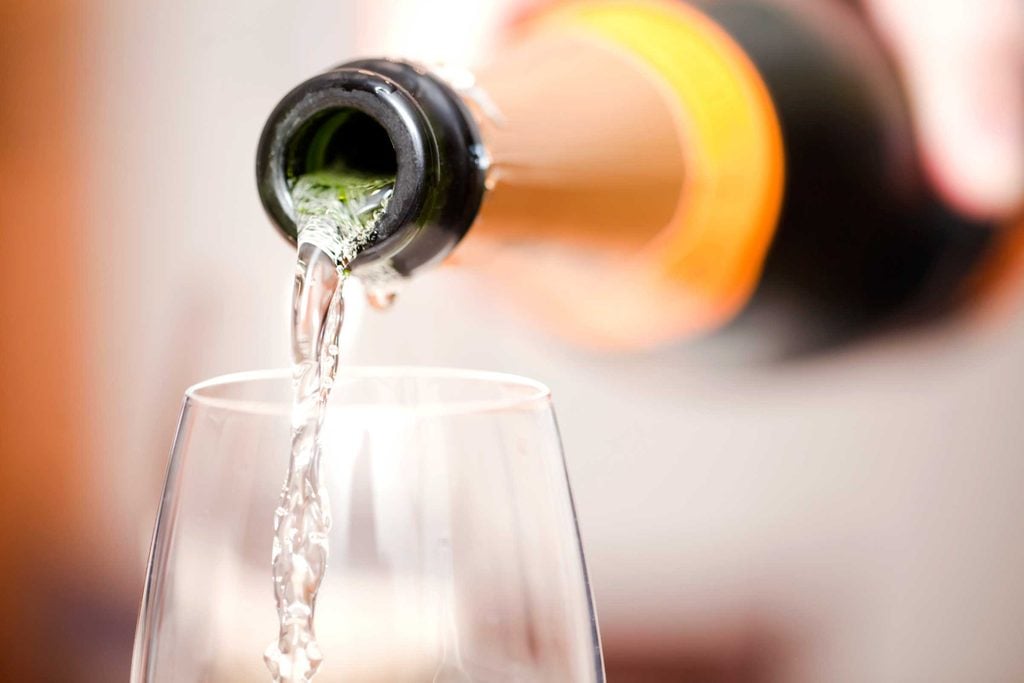Do You Really Have to Stop Drinking on Antibiotics?
Updated: Dec. 15, 2016
The surprising reason one drink (probably) won’t hurt.

With the holidays in full swing, invitations for family dinners, office parties, and cocktail hours come in droves. One thing that could spoil all the holiday fun? Being the guest who turns down a glass of champagne because you’re on antibiotics. Thankfully, there’s a way to avoid becoming the scrooge of the soirée.
First things first: Can you mix your favorite holiday cocktail with antibiotics? Well, that depends. In a London survey, 81 percent of patients believed that alcohol inhibits the effectiveness of antibiotics, while 71 percent believed that it creates side effects to the drugs. But according to experts, both are slight misconceptions.
A study published by the National Institute of Health notes that while certain antibiotics can cause extreme reactions when mixed with alcohol, others are less likely to do so. This news might come as a surprise to any partygoer who has declined a drink in the name of “doctor’s orders.”
Still, there are a specific handful of antibiotics that do cause a severe reaction when alcohol is consumed. Metronidazole (also called Flagyl), tinidazole (Fasigyn), and trimethoprim/sulfamethoxazole (Bactrim) are three of the biggest culprits. These drugs impair the body’s breakdown of alcohol, boosting a chemical compound called acetaldehyde in the blood. High levels of this toxin will stimulate unpleasant symptoms akin to a hangover, including severe nausea, vomiting, facial flushing, and a rapid heart rate—even after just one glass of beer. Other antibiotics such as isoniazid and flucloxacillin can cause inflammation of the liver due to alcohol consumption. In these cases, it would be wise to heed the long lecture from your doctor or pharmacist and give booze the boot.
If you’re not taking these prescriptions (which typically combat infections in the gums and intestines, infected leg ulcers and pressure sores, or infections caused by childbirth), some experts say there’s little cause for serious concern.
Nevertheless, there’s still a myriad of reasons to avoid alcohol while on antibiotics, even if it’s just penicillin. For one, “although alcohol doesn’t reduce the effectiveness of most antibiotics, it can reduce your energy and delay how quickly you recover from illness,” according to James M. Steckelburg, MD, professor of medicine at Mayo Medical School, on the website of the Mayo Clinic. Plus, alcohol can increase the already existing side effects of antibiotics, making your queasy stomach and worsening dizziness and sleepiness.
For those reasons, most doctors and pharmacists recommend that patients avoid alcohol while taking any kind of antibiotic—and for another two to three days afterward. After all, “why risk it?” says Mohamed Jalloh, spokesman for the American Pharmacists Association and assistant professor at Touro University in California. “It’s better to avoid the possibility of interrupting your recovery. The last thing you want to do is increase the risk of something happening.” Always ask your doctor these essential questions whenever you’re prescribed an antibiotic.














